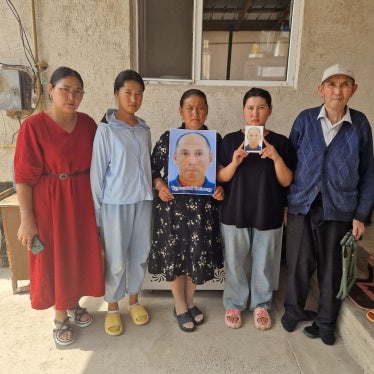Freedom of expression has become a battleground in post-revolution Tunisia. Debate is already raging at the National Constituent Assembly over a draft constitution put forward by the Islamist Ennahdha party that includes an article stating, “Freedom of thought, expression, press, and publication are guaranteed while taking into consideration the sanctities of peoples and religions.”
This debate has implications for all of the countries experiencing the ‘Arab spring’. But there have been recent echoes of the same issues in western capitals as well. Meanwhile in Tunisia, the flag of freedom of expression has often been waved when politically convenient and forgotten when it isn’t.
A visit in February by the Egyptian cleric Wajdi Ghounim, notorious for his fatwa supporting the practice of female genital mutilation (FGM), widened the rift between secularists and Islamists. Invited by three Tunisian nongovernmental organizations, Ghounim gave sermons around the country in which he equated secularists to enemies of Islam. On the airwaves of Radio Mosaïque FM, he said that FGM, while not compulsory, is a practice encouraged by Islamic scholars for “medical reasons” and likened it to “cosmetic surgery.” “Every person who does not abide by the law of God,” Ghounim said on Mosaïque, “is an apostate.”
In response, several nongovernmental organizations declared that the authorities should not tolerate rhetoric that incites hatred toward secularists or advocates FGM, which is not even practiced in Tunisia.
The response from the coalition government, an alliance between the dominant Islamist Ennahdha and two secularist parties, was disjointed, reflecting the wide spectrum of Tunisian opinion. The Ministries of Women’s Affairs and Health cautioned Tunisians against the dangers of FGM and urged them to report any cases. In an interview with the national Tunisian television, the interim president Moncef Marzouki commented, “Ghounim is abnormal and those who invited him are germs.” He later apologized for his choice of words. In a radio interview, the president of the National Constituent Assembly, Mustapha Ben Jaâfar, declared, “The visit of Wajdi Ghounim to Tunisia was a mistake."
Other officials, such as the foreign affairs minister, Rafiq Abdesslam, said that since the cleric’s sermons did not constitute hate speech, Tunisian authorities had no basis to interrupt his tour or bar him from the country. Ennahdha said in a February 17 statement that Ghounim’s speech was protected under the right to freedom of expression.
International human rights law provides strong protections for free expression. It grants states leeway to restrict it, provided that such restrictions are both defined narrowly and necessary in a democratic society for national security or public safety, public order, the protection of public health or morals or the protection of the rights and freedoms of others. In addition, the International Covenant on Civil and Political Rights requires states to prohibit “advocacy of national, racial or religious hatred that constitutes incitement to discrimination, hostility or violence.” Arguably, Ghounim’s speech did not cross that line.
International law is clear in distinguishing between hate speech that constitutes incitement to such dangerous hatred and that should be prohibited, and speech that may disturb or even offend members of a religious community or other social group but that must nevertheless be permitted.
It would normally be reassuring that government ministers from Ennahdha and the party itself defend Ghounim’s right to express his controversial views. However, the government has displayed a contrary tendency in using the former Tunisian regime’s legal arsenal to file charges against journalists and media directors whose controversial expression is deemed offensive to public morals. These cases go far beyond the permissible limitations to free expression under international law.
Prosecutors have brought charges against the director of a TV station for airing the movie Persepolis. The objection was an image in the animated film that depicts a girl’s conversation with God, which is prohibited by some versions of Islam.
Recently, two French weeklies were kept off the newsstands, one because it contained a representation of the Prophet Muhammad, and the other because of a front-page headline, “Questions and Answers on the Existence of God.”
The officials who invoke free expression in allowing a cleric to promote female genital mutilation and brand as “apostates” the significant percentage of Tunisian Muslims who consider themselves secular should equally defend speech that may offend the sensibilities of their compatriots who are religiously or socially conservative.
In their first free elections since independence, Tunisians showed, among other things, their political diversity. The challenge of the Constituent Assembly is now to draft a constitution that will protect this diversity of viewpoints for all components of society.
As Tunisia has led the Arab spring, other countries going through the same process will be watching. Determining the permissible limitations on free speech in a democratic society, even when it offends, is also of crucial importance in many other countries.
*Amna Guellali is the Tunisia and Algeria researcher at Human Rights Watch.*







